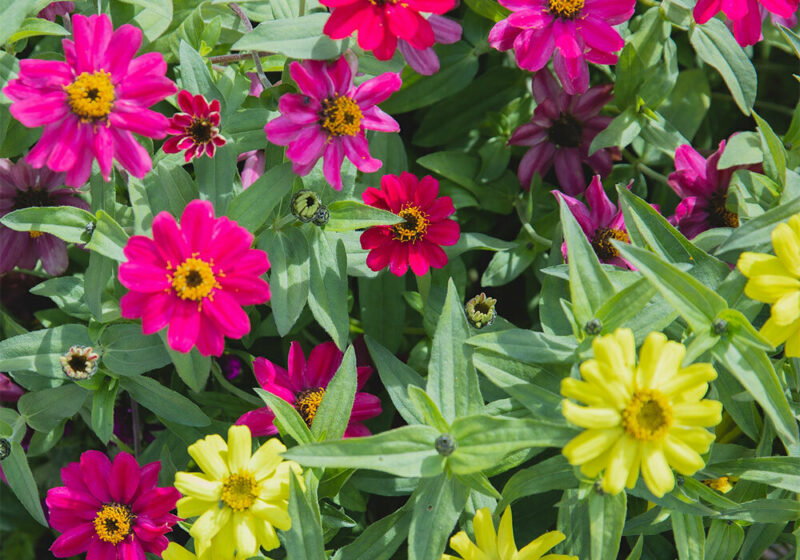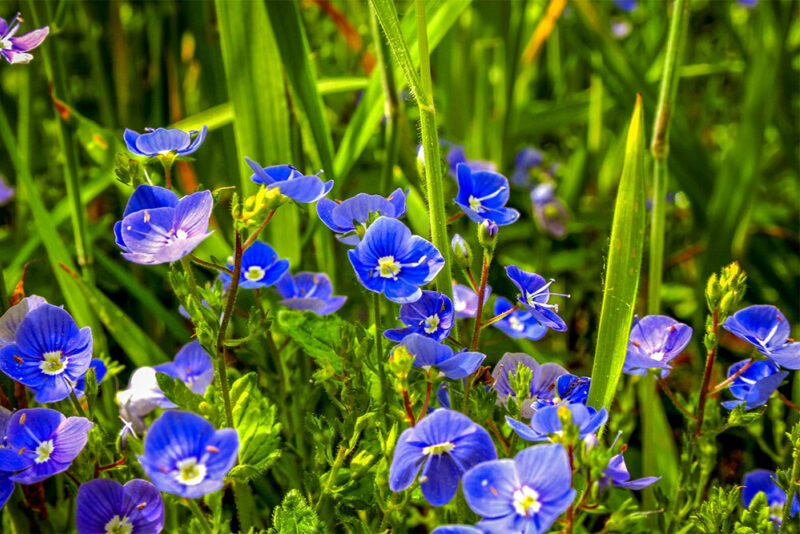Article Excerpt
These plants are as beautiful as they are tough. They don't require much water and are unbothered by the grueling Texas heat.
As a general rule, the more native plants you use, the better chance your yard has of making it through the summer. Plants from other climates won’t necessarily take to Texas weather very well unless you give them a great deal of attention. Ideally, you want to find plants that can stand up to the heat without needing constant care.
These plants have shown they can beat the heat!
Red Yucca
Red yucca (or Hesperaloe parviflora, if you’re nerdy) is a native of the desert regions that span from west Texas to northeastern Mexico. This means it is quite accustomed to Texas summer heat and does not require a great deal of watering or other care. It’s so well-suited for the climate in this area, in fact, that the Texas A&M University publication AgriLife Today named the red yucca a “Texas Superstar” plant in 2022.
![Photo by Bennilover on Flickr [Creative Commons] Red Yucca](/images/articles/_generalPhotoStandard/red-yucca.jpg)
Photo by Bennilover on Flickr [Creative Commons]
Zinnias
Zinnias comprise a genus of flowering shrubs native to many parts of North America and some areas of South America. They belong to the same family as daisies, sunflowers, and asters. Many different species and varieties are available in a wide range of colors. The common zinnia (Zinnia elegans) can produce flowers in various shades of white, red, pink, yellow, and green. They do very well in hot temperatures and can handle drought conditions.

Photo by Ryutaro Tsukata on Pexels
Cornflower
The cornflower (Centaurea cyanus) is a flowering plant in the same family as zinnias, although it originated in Europe. It has been a part of European gardens since ancient times, and it is now commonly seen in North America as well. It got its name from its tendency to grow as a weed in corn fields. Once cornflower seeds have germinated, they can easily handle the summer heat. You should plant them inside about a month before you want to move them outside.
![Photo by Sarah on Flickr [Creative Commons] Cornflower](/images/articles/_generalPhotoStandard/cornflower.jpg)
Photo by Sarah on Flickr [Creative Commons]
Lantana
Lantanas are part of a genus of the same name with around 150 species of flowering plants. They are native to the tropics in Africa and the Americas, but have found their way to Texas and other parts of the U.S. In fact, people in many parts of Texas consider lantana to be an annoying but pretty weed. This lets you know that it can handle the Texas climate. Like zinnias, many different varieties and colors are available.
![Photo by odonata98 (Kimberly Reinhart) on Flickr [Creative Commons] Hummingbird eating from a lantana](/images/articles/_generalPhotoStandard/lantana.jpg)
Photo by odonata98 (Kimberly Reinhart) on Flickr [Creative Commons]
Rosemary
Rosemary (Salvia rosmarinus or Rosmarinus officinalis) is a shrub with needle-shaped evergreen leaves and flowers that may be blue, pink, purple, or white. It is originally from the Mediterranean region, where it has long thrived in hot and fairly dry conditions. That makes Texas the perfect place for it. If you’ve ever wanted your own herb garden, a rosemary plant might be a great way to start.

Photo by Rachael Holzman on Pexels
Germander
Germanders are part of a genus of flowering plants known as Teucrium. They belong to the same family as rosemary and many other herbs, including basil, mint, oregano, sage, and thyme. The genus has about 300 species spread out all over the world. Many species are from the Mediterranean, but even Australia has several native germander species. At least two kinds of germanders are common in various parts of Texas:
Tree germander (Teucrium fruticans), also known as bush germander, can grow up to 6 feet in both height and width. Its flowers can be blue or purple.
Lacy germander (Teucrium laciniatum) grows much closer to the ground, often forming a thick mat. Its flowers are white.
Both types of germanders are very tolerant of drought and hot temperatures.

Photo from Pxfuel
Make a garden of your own!
Taking liberties in home gardening and landscaping is one of the many joys that homeownership brings. The professionals at The Wood Group of Fairway are here to guide you through the mortgage process with friendliness and speed. Achieve all your botanical aspirations by getting started with the mortgage lender Texans trust!



